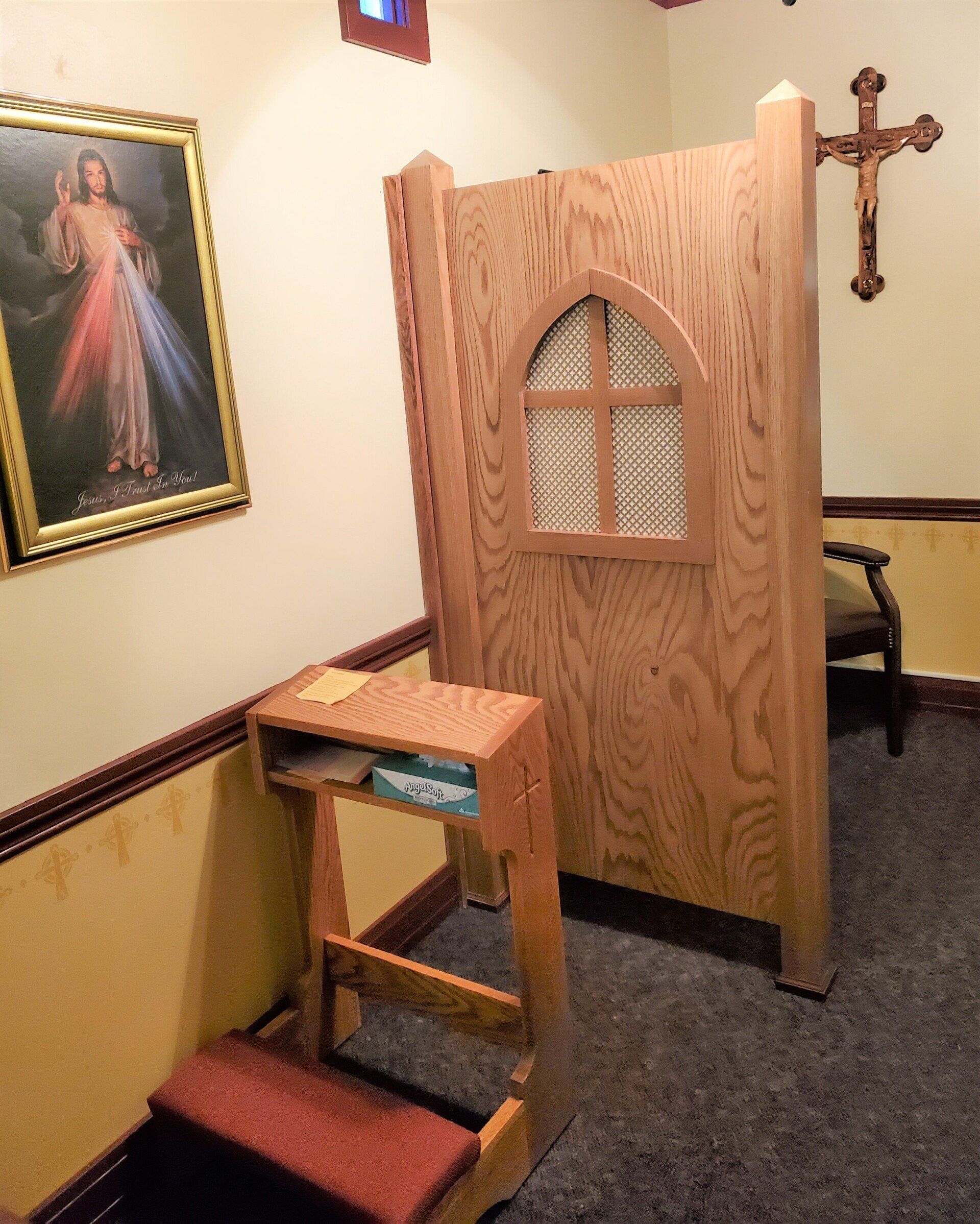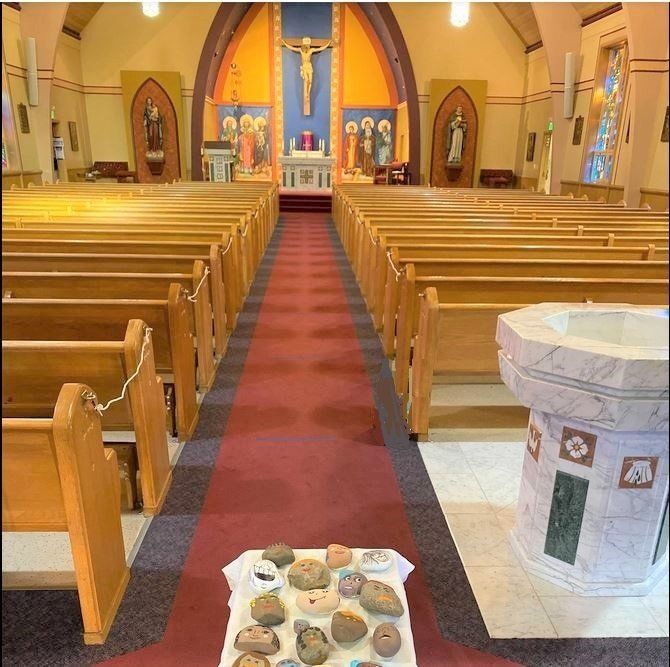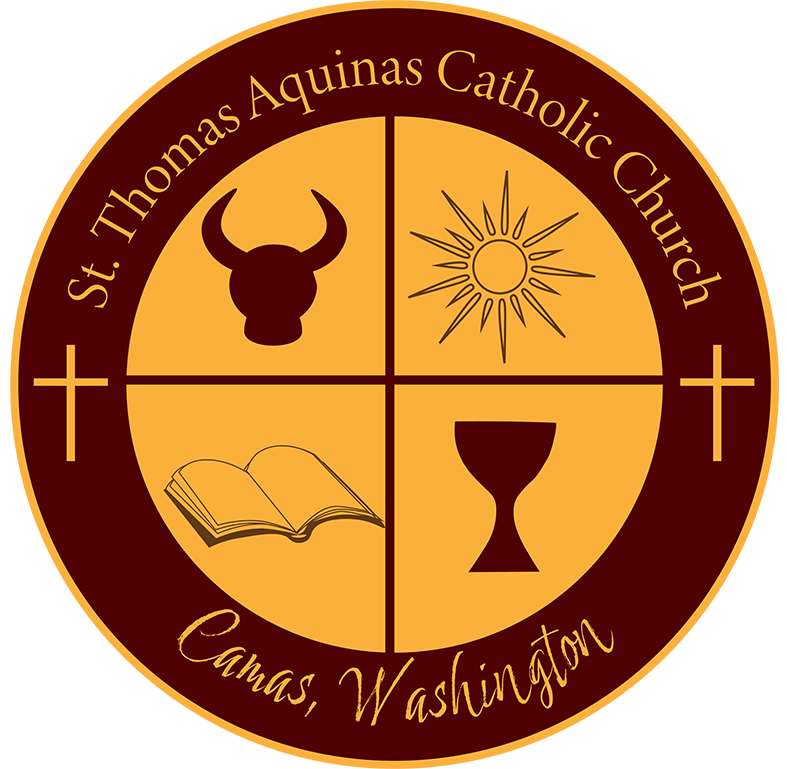Reconciliation
This is the Sacrament in which sins committed after Baptism are forgiven. It results in reconciliation with God and the Church. (US Catholic Catechism for Adults, Glossary)
Reconciliation is offered Saturday mornings, after the 8:30am Mass; 4pm on Saturday afternoons before the 5pm Mass, Tuesday evenings before the 6pm Mass, and by appointment. Call the parish office 360-834-2126.
Reconciliation Room
“Provision must be made for a place for reconciliation which is clearly visible, truly accessible, and which provides a fixed grille between the penitent and confessor. Provision must also be made for those instances when the penitent wishes to confess face-to-face.” Our Reconciliation Chapel is more accessible than our confessionals have been, and we now have that opportunity for face-to-face reconciliation, while maintaining the option to celebrate the sacrament anonymously.
Reconciliation at
St. Thomas:
-Tuesday evenings, before the 6pm Mass
-Saturday mornings, after the 8:30am Mass
-Saturday afternoons, before the 5pm Mass (4:00-4:45pm)
You can also make an appointment for spiritual direction or private confession by calling the office. 360-834-2126.
Brochures available in office:
Examination of Conscience for Children (printable)
Examination of Conscience for Adults (printable)


- We feel contrition for our sins and a conversion of heart to change our ways.
- We confess our sins and human sinfulness to a priest.
- We receive and accept forgiveness (absolution) and are absolved of our sins.
- We celebrate God’s everlasting love for us and commit to live out a Christian life.
- reconciliation with God by which the penitent recovers grace
- reconciliation with the Church
- remission of the eternal punishment incurred by mortal sins
- remission, at least in part, of temporal punishments resulting from sin
- peace and serenity of conscience, and spiritual consolation
- an increase of spiritual strength for the Christian battle (CCC 1496)




